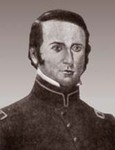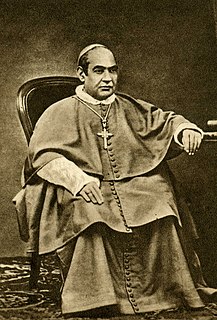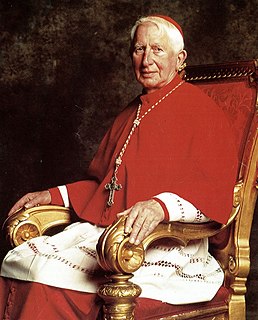Цитата Джона Генри Ньюмана
Взять крест Христов — это не великое действие, совершаемое раз и навсегда; оно состоит в постоянном выполнении мелких обязанностей, которые нам неприятны.
Связанные цитаты
Вся жизнь Христа была непрерывным страданием; другие умирают мучениками, но Христос родился мучеником. Он нашел Голгофу даже в Вифлееме, где родился; ибо тогда для его нежности соломинки были почти такими же острыми, как шипы после, и ясли были такими же беспокойными сначала, как и его крест, наконец. Его рождение и его смерть были лишь одним непрерывным действием, а его Рождество и его Страстная пятница — всего лишь вечер и утро одного и того же дня. И как даже его рождение есть его смерть, так всякое действие и прохождение, являющее нам Христа, есть его рождение, ибо Богоявление есть явление.
Приспособление — это центральный аспект межцентровой интерпретации насильственных портретов Бога, за которую я выступаю. Как и все остальное в Cross Vision, эта концепция связана с крестом. На кресте Бог наклоняется, чтобы встретиться с нами и войти в солидарность с нами именно там, где мы находимся, то есть в рабстве греха и сатаны. И он делает это, чтобы освободить нас и привести нас туда, где он хочет, чтобы мы были, которые соединены с ним во Христе. Таким образом, крест является парадигматическим примером того, как Бог милостиво снисходит, чтобы приспособить людей в их падших условиях.
Совершенство состоит только в одном: в исполнении воли Божией. Ибо, по слову Господа нашего, для совершенства достаточно отречься от себя, взять крест и следовать за Ним. Кто же отрекается от себя, берет крест свой и следует за Христом лучше, чем тот, кто стремится исполнять не свою волю, а всегда волю Божию? Вот, как мало нужно, чтобы стать таким же Святым? Не более чем приобрести привычку во всяком случае желать того, чего желает Бог.
Радостное исполнение своего пола: священные обязанности любимой жены, помощницы и матери. В отличие от вульгарной и меркантильной суеты большого мира идиллические удовольствия домашнего очага, которые, я твердо верю, превращают одну маленькую комнату в везде; и дай нам ту маленькую меру блаженства, которая есть, если мы очень удачливы и заслуживаем обещанного нашим Господом нам грядущих Небес.
Христианин, желающий следовать за Иисусом, несущим свой крест, должен помнить, что имя «христианин» означает «ученик или подражатель Христа» и что если он хочет достойно носить этот благородный титул, он должен прежде всего поступать так, как Христос велит нам в Евангелие: Мы должны противостоять или отвергнуть себя, взять крест и следовать за Ним.
Но ученичество никогда не состоит в том или ином конкретном действии: это всегда решение либо за Иисуса Христа, либо против него... Христос говорит с нами точно так же, как говорил с ними. Не то чтобы они сначала признали в нем Христа, а затем получили его повеление. Они поверили его слову и повелению и признали в нем Христа — именно в таком порядке.
Но мы глубоко ошибаемся, думая, что христианство защищает нас от боли и агонии смертного существования. Христианство всегда настаивало на том, что крест, который мы несем, предшествует венцу, который мы носим. Чтобы быть христианином, нужно взять свой крест со всеми его трудностями, мучительным и трагичным содержанием и нести его до тех пор, пока этот самый крест не оставит на нас свои следы и не искупит нас на тот лучший путь, который приходит только через страдание. .
Суета существования обнаруживается во всей форме, которую принимает существование: в бесконечности времени и пространства, противопоставленной конечности индивидуума в том и другом; в мимолетном настоящем как единственной форме, в которой существует действительность; в случайности и относительности всех вещей; в постоянном становлении без бытия; в постоянном желании без удовлетворения; в постоянном разочаровании стремления, из которого состоит жизнь. . . Время — это то, благодаря чему все становится в наших руках ничем и теряет всякую реальную ценность.
Встречи проводятся потому, что мужчины ищут компании или, как минимум, хотят избежать утомительной работы в одиночестве. Они жаждут престижа, который достается человеку, председательствующему на собраниях, и это побуждает их созывать собрания, на которых они могут председательствовать. Наконец, есть собрание, которое созывается не потому, что нужно сделать какое-то дело, а потому, что необходимо создать впечатление, что дело делается. Такие встречи — больше, чем замена действиям. Они широко рассматриваются как действия.





































